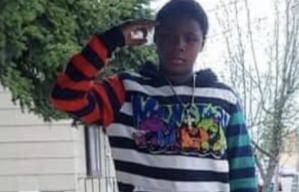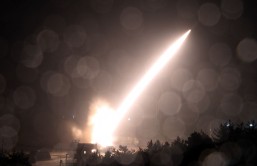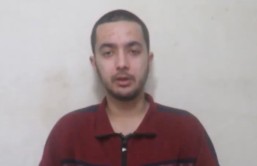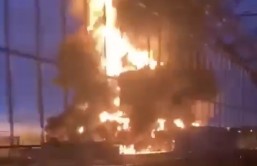For nearly 45 years, Jose Feliciano's bilingual Christmas song "Feliz Navidad" has been a staple of the holiday season. The buoyant tune and lyrics, which simply wish the listener "Merry Christmas" in Spanish and English, bridged language and cultural gaps and remains atop Billboard's Holiday Airplay chart and is No. 2 on its Latin Digital Songs chart. All that is fitting for Feliciano, the Puerto Rico-born American resident who was already recognized as the first crossover artist to blend English lyrics with Latin rhythms.
Like the hit song, Feliciano, the 69-year-old singer and guitarist, has proven staying power. Despite his desire to pursue new material, he does not shy away from his past, is grateful for his accomplishments, and is happy to revisit "Feliz Navidad" each year. In fact, he'll perform it Wednesday night with the choir at a church in Westwood, Conn., to close out Christmas Eve mass, which has been his tradition for more than 15 years.
Blind since birth, Feliciano moved with his family from Puerto Rico to New York City's Spanish Harlem section at age 5. Exposed to various types of music from both the Spanish-speaking and English-speaking worlds, Feliciano was an early bloomer, playing professionally at a young age and signing a major recording contract by age 19. In 1968, he had a hit with his version of The Doors' "Light My Fire," which led to two Grammy Awards for Best Pop Song and Best New Artist of the Year. Also in 1968, he ignited some controversy by performing a dramatically reworked version of "The Star Spangled Banner" at the World Series.
A jovial and outspoken Feliciano recently spoke with HNGN about why he wrote his famous Christmas song in two languages, his early life as a musician, his version of the national anthem – and his strong patriotism and how it relates to the current national unrest in the wake of several high-profile police killings.
HNGN: When you wrote "Feliz Navidad," did you have a feeling it was going to be a smash hit?
JF: No. I wrote it because my producer, Rick Jarrard, said, "Jose, you should write a new Christmas song." At that particular time, the last song that was written for Christmas was "Rock Around The Christmas Tree" with Brenda Lee. Well, we were in California, it was June, and so I started humming a melody, and I started singing in Spanish, "Feliz Navidad." And after singing that, I thought to myself, "Jose, you should not write it just in Spanish. That way the radio stations are going to be forced to play you." They can't say, "Oh, we can't play it because it's in Spanish." So I fixed their wagons and also wrote it in English, with "I want to wish you a Merry Christmas." And the rest is history. I'm very happy that it's played every year. And this year, we're No. 2 on the Latin charts, and No. 4 on the Anglo charts. So how much better can it get?
HNGN: For people of a certain age, the song was introduced to them in the 1978 TV special "Christmas Eve on Sesame Street." Do people still talk to you about that?
JF: People tell me they saw it on "Sesame Street," and I saw it and I thought that was nice of "Sesame Street" to do that, and (the song) is kind of like "Sesame Street," because I taught the Anglo people to speak Spanish, and I taught the Spanish people to speak English. So, hey, I'm happy.
HNGN: When you recorded your take on The Doors' "Light My Fire," what were you trying to accomplish with your version?
JF: I liked the song, and my producer, again, Rick Jarrard, in 1968, said to me when we were doing the "Feliciano" album, he said, "Why don't you record 'Light My Fire?'," because he had seen me perform it. I said, "Ya know, Rick, it was a hit already." He said, "Please do it." So I obliged him, I did it. It was the B-side of "California Dreamin," which was the first single out of the box, and "California Dreamin'" was climbing, because people liked my version a lot. But then someone turned the record over on the other side, and "Light My Fire" started to catch on, and I was really goin'.
HNGN: Another song you're known for is your interpretation of "The Star Spangled Banner" you played at the World Series in 1968. Was that a special song to you because you had a certain appreciation for this country as someone who moved here at an early age?
JF: It was kind of bittersweet to me. When I did the national anthem, I did a soulful, kind of gospel-y version, but it was controversial with the war veterans, just the people who wanted to hear it the old, clinical, atmospheric way, and I didn't want to sing it like that. I was the first artist to put the national anthem on the charts, and I'm thrilled.
HNGN: Since then, unorthodox versions of the national anthem are pretty common. So you opened the door for that.
JF: Yes, I hear other people singing it, and I try not to say, "Ah, thank you Jose" (laughs). The reason I did it is because I saw that people would go to the ballgame, and when the anthem came on, they'd be anxious for the anthem to be over, they'd eat popcorn and not even salute the flag. I'm a patriot, I love America, and that's why I did it, for my love of America and what it's given me. As a Hispanic American, this country has done a lot for me, and I think that people have to be more grateful for what they have in this country.
For example, all these things that are happening with the police and stuff like that. I'm not saying that the police are always right, and there are profiling and things of this nature, but I also feel that when people protest, don't punch a policeman like they did a couple of nights ago. That's not right. And the thing that gets me, I'm sorry that Eric Garner died, especially since he had such a large family, and I'm sorry that Michael Brown died. But you know, if you go into a store and rob it, what do you expect? I'm sad, because a life is a life, whether he is black, white, Asian or Hispanic, when you lose a life, for whatever reason, it's not good; it's bad. So those are my feelings.
HNGN: Speaking of the World Series, I understand you're a big baseball fan. Who's your favorite team?
JF: Usually I root for the Yankees, but this year, I don't know about the Yankees, with Derek Jeter gone and Robinson Cano in Seattle, the Yankees really don't have much of a power team this year. The best thing about the Yankees is (manager) Joe Girardi. And if the Yankees don't win next year, they cannot blame Joe Girardi. The guy to blame is the GM, and that's it; we'll leave it there (laughs).
HNGN: I understand you have a few new albums coming out. Tell us about that.
JF: I just finished a CD of Mozart operatic arias for castrati singers, and I did it on guitar, which is very difficult to do because Mozart's music is not easy to play and it's not written for guitar. I have a concert album that I did in Tel Aviv, Israel, that is also coming out. I have a lot of things going on, I'm not sitting around.
HNGN: How do you approach your concerts? A lot of performers from your era have become known as nostalgia acts because they only play their older material.
JF: No, when I do my concerts I play the things they expect to hear, but I also put in some new material as well. That way people don't say, "Well, what's the matter with Jose? Isn't he growing? What's he doing?"
HNGN: What type of music do you remember listening to as a youth?
JF: I moved to New York when I was five, and I came in on singers like Perry Como, Andy Williams, Rosemary Clooney, Les Paul, Mary Ford, Guy Mitchell, Frank Sinatra, of course, Tony Bennett, Gentleman Jim Reeves. And then in 1954 or '55, rock 'n' roll started coming to be, and I started listening to singers like Chuck Berry, Frankie Ford, Frankie Lymon, The Drifters, Clyde McFatter. I also used to listen to groups like The Silhouettes with "Get A Job." I was into rock 'n' roll, and then in '56, when I was 11 years old, Elvis came along and I loved his first record "Heartbreak Hotel" and I started enjoying his music, things like "All Shook Up," "Don't Be Cruel," "Hound Dog" and "Good Luck Charm" in the '60s. So ya know, I have a variety of music.
Then in the '60s I got into jazz a little bit, because I had my own jazz group, and we appeared on the "Ted Mack Amateur Hour" in '62; I was 16.
HNGN: What Spanish music were you listening to?
JF: When I came over at 5, there weren't that many Spanish radio stations. There were three, but in the beginning they were small stations like WWRL, which had a Spanish program, because they were also a black station, and they played r&b and things like that; WHOM in New York was a Spanish station; WBNX. So I started listening to people like Celia Cruz, Tito Rodriguez, Tito Puente, El Trio Los Panchos. Again, I listened to a variety, and when I got older, when I was 16, I started listening to Andres Segovia because I thought I was going to be a classical guitarist, and then popular music called me, folk music called me, so I started playing in the Village. I was signed by RCA at 19, and the rest is history.
HNGN: Why was it so important for you to cross over into the English-speaking market?
JF: It wasn't that it was important; it was a way of life for me. I was living among the American culture and I sang in English and Spanish, and when I was signed by RCA, I was signed as an American artist, not a Spanish artist. And then I went to Argentina in 1967, and I talked to RCA Records there, and I said, "Let me do some boleros," which are the Spanish torch ballads. After that, man, I became a teen idol in the Latin market. I always tell my wife, she's married to the Puerto Rican Elvis.
HNGN: What does she say to that?
JF: We laugh about it. But it was true, I'm not denying this, because women would come up to me like they did with Elvis, and they wanted to kiss me, women were screaming when I landed at the airports in the Latin countries. I had a lot of fans, and it was very interesting, and as a blind person, I had to learn to run into a limousine, which is pretty crazy (laughs). But you know, I never let the things that happened to me give me a big head. I've always been grateful for what's happened to me, and I love music.









